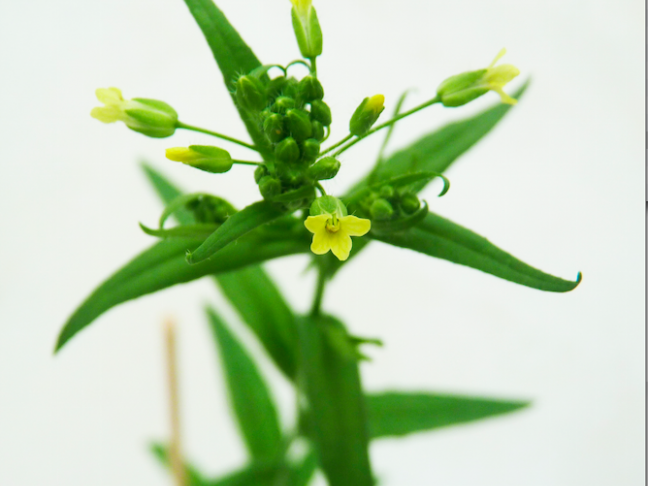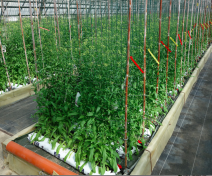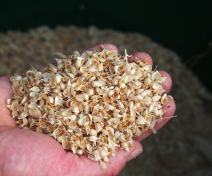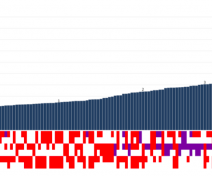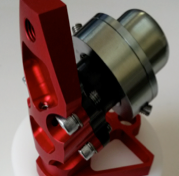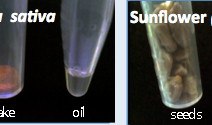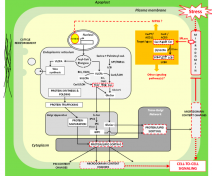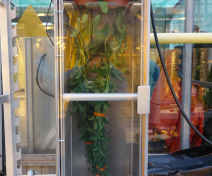Lipids are essential molecules involved in cell structure, signaling and obviously in the formation of reserves but also in the response to stress. These different functions interact and contribute to the proper functioning of plants, but also are the source of new applications.
The DIPOL group is interested in the roles of lipid metabolism during plant development and in response to abiotic and biotic stresses. Lipids and proteins are essential components of membranes.
The synthesis of endomembranes takes place, for the most part, in the endoplasmic reticulum (ER) with desaturation and elongation of fatty acids (FA), and with synthesis of sphingolipids and phospholipids. The ER is also responsible for the synthesis of storage lipids, such as triacylglycerols, then stored in lipid droplets.

The DIPOL group is interested in understanding the roles of lipid metabolism and its compartmentalization at the level of the ER and lipid droplets, in plant development and stress responses. The DIPOL group focuses on 3 main questions:
- How lipid metabolism could contribute to ER homeostasis in response to biotic and abiotic stresses ? And, conversely, how the ER could control lipid metabolism under stressful conditions?
- How are lipid droplets formed and how can they be used for engineering applications?
- How could lipid metabolism be better integrated to improve oil quality and yield but also to improve plant resistance to stress?
Models, tools and methods
The research activities of the DIPOL group are conducted on several plant species including Arabidopsis, Camelina sativa, tobacco (Nicotiana benthamiana) and tomato depending on the research projects. The group also uses yeast and moss (Physcomitrela patens) for specific projects.
The DIPOL group also brings together a wide range of expertise including molecular genetics, imaging, cell biology, biochemistry and lipid chemistry. Specific expertise has been developed in the 3 research axes of the DIPOL group:
- Ingeneering of lipid droplets (functionalization, purification, component analysis)
- Reverse genetics associated with pharmacology and lipid chemistry approaches for responses to ER stress
- Synthetic biology and translation tools for camelina (transformation, vectors, CRISPR, pressing devices, etc.)
The synthesis of endomembranes takes place, for the most part, in the endoplasmic reticulum (ER) with desaturation and elongation of fatty acids (FA), and with synthesis of sphingolipids and phospholipids. The ER is also responsible for the synthesis of storage lipids, such as triacylglycerols, then stored in lipid droplets.

The DIPOL group is interested in understanding the roles of lipid metabolism and its compartmentalization at the level of the ER and lipid droplets, in plant development and stress responses. The DIPOL group focuses on 3 main questions:
- How lipid metabolism could contribute to ER homeostasis in response to biotic and abiotic stresses ? And, conversely, how the ER could control lipid metabolism under stressful conditions?
- How are lipid droplets formed and how can they be used for engineering applications?
- How could lipid metabolism be better integrated to improve oil quality and yield but also to improve plant resistance to stress?
Models, tools and methods
The research activities of the DIPOL group are conducted on several plant species including Arabidopsis, Camelina sativa, tobacco (Nicotiana benthamiana) and tomato depending on the research projects. The group also uses yeast and moss (Physcomitrela patens) for specific projects.
The DIPOL group also brings together a wide range of expertise including molecular genetics, imaging, cell biology, biochemistry and lipid chemistry. Specific expertise has been developed in the 3 research axes of the DIPOL group:
- Ingeneering of lipid droplets (functionalization, purification, component analysis)
- Reverse genetics associated with pharmacology and lipid chemistry approaches for responses to ER stress
- Synthetic biology and translation tools for camelina (transformation, vectors, CRISPR, pressing devices, etc.)
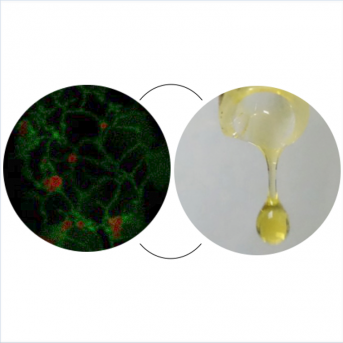
Leader:
Jean-Denis Faure
